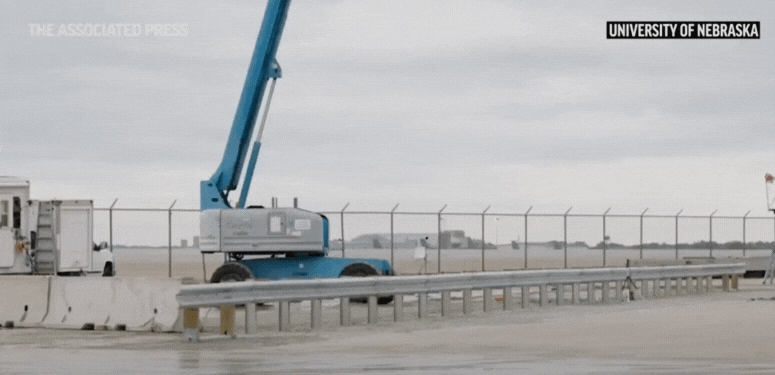Toronto, Ontario — Engineers with the University of Nebraska’s road safety testing facility have discovered that electric vehicles are too heavy to be stopped by highway guardrails.
On Wednesday, engineers with the university released their initial crash test results in which a 2022 Rivian R1T—which weighs nearly four tonnes—was rammed into the same type of guardrails used along most American and Canadian highways.
During the test, engineers watched as the Rivian R1T tore through the metal guardrail and hardly slowed until hitting a concrete barrier yards away on the other side of the test lane.
“We knew it was going to be an extremely demanding test of the roadside safety system,” said Cody Stolle with the university’s Midwest Roadside Safety Facility. “The system was not made to handle vehicles greater than 5,000 pounds.
Video from the Associated Press YouTube channel.
Road safety officials and organizations have weighed in on the issue and say that electric vehicles themselves appear to offer superior protection to their occupants, even if they, like other heavy vehicles, might prove dangerous to occupants of lighter vehicles in a crash.
Notably, the Rivian truck used in testing showed almost no damage to the cab’s interior after slamming into the concrete barrier, Stolle said.
Stole further noted that more testing involving computer simulations and test crashes of more electric vehicles is planned, and will be needed to help determine how to engineer roadside barriers that minimize the effects of crashes for both lighter gas-powered vehicles and heavier electric vehicles.











































































